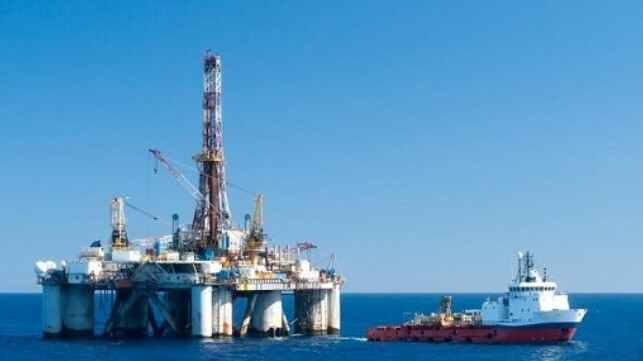U.S. Bill Seeks Limits on Foreign Workers on Vessels on Continental Shelf

The long-running battle by the American labor movement and supporters to limit the employment of foreign workers on vessels operating in the offshore sector on the U.S. Outer Continental Shelf is finding allies in the U.S. Congress. U.S. Senator Bill Cassidy of Louisiana and a member of the Senate Energy and Natural Resources Committee, has introduced the American Offshore Worker Fairness Act which seeks to tighten exemptions on foreign labor. A House of Representatives version of the legislation was included in the Coast Guard reauthorization bill.
“U.S. and Louisiana mariners and maritime companies must be able to compete on a level playing field in the Gulf of Mexico for all offshore energy activities,” said Cassidy. “We cannot continue to lose to foreign vessels who take advantage of loopholes, avoid paying taxes, and hire foreign workers. This bill finds the balance that maximizes opportunities for U.S. companies and workers and avoids project delays.”
Current law requires that all vessels, rigs, platforms, or other offshore structures operating on the Outer Continental Shelf be manned by U.S. citizens or lawful permanent residents. The law however includes an exemption from hiring Americans or lawful permanent residents for offshore activities and allows vessels that are more than 50 percent foreign-owned to operate in U.S. waters with foreign crews.
Supports of the legislative action argue that the exemption was included to eliminate potential retaliation by foreign nations against American workers in foreign offshore activities. They contend the exemption has not provided reciprocal access to foreign waters for U.S. mariners while foreign vessels have been able to take advantage of the loopholes.
They highlight that many of these foreign vessels, while owned or operated by companies in “wealthy countries,” use labor from “low-wage nations” to keep the costs low in operating their vessels. Labor is one of the largest cost components in the offshore sector. Further, because foreign mariners are not subject to U.S. tax and labor laws, they argue that foreign vessels owners are able to leverage the cost savings to undercut the charter rates of similar U.S. vessels.
The proposed American Offshore Worker Fairness Act seeks to limit employment on the vessels engaged in the offshore trade to either U.S. mariners or citizens of the nation where the vessel is flagged. It would also requires foreign mariners serving in U.S. waters to secure a Transportation Worker Identification Credential (TWIC) which the sponsors argue to improve the oversight of foreign-flagged vessels and the mariners that work on board them. It would also limit the number of foreign mariners that may receive a visa sponsored by a vessel’s exemptions (letter of OCSLA non-applicability) to 2.5 times the number of persons required by the vessel’s safe manning document. Finally, it would sunset current exemptions required for foreign vessels forcing them to reapply and limit any future exemptions to a maximum of 12 months.

that matters most
Get the latest maritime news delivered to your inbox daily.
Responding to the arguments that this legislation would disrupt operations, the sponsors say the goal is to improve oversight of foreign-flagged vessels and the mariners who work on these vessels and would include exemptions for critical functions. For example, vessels such as oil rigs or mobile offshore drilling units or vessels performing certain offshore lifts, including offshore wind installation vessels, would be exempt. It also creates a new domestic market survey requirement for foreign vessels laying pipelines or cables on Outer Continental Shelf that would allow foreign vessels to perform this work if a U.S. flagged vessel is not available and/or capable of performing the work sought.
Sponsors have tried to get similar actions in the Congress in recent years contending that Americans are losing work due to the loopholes in the current laws.
